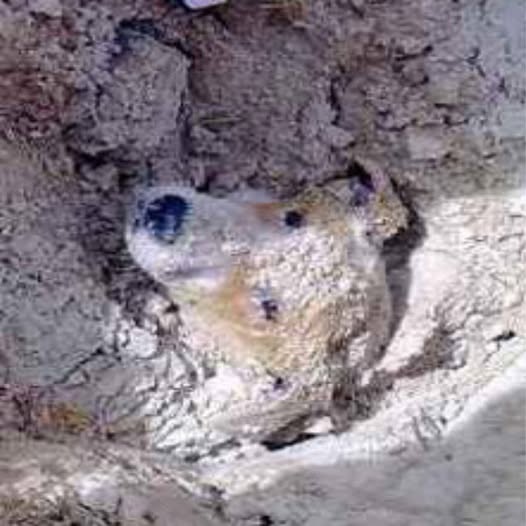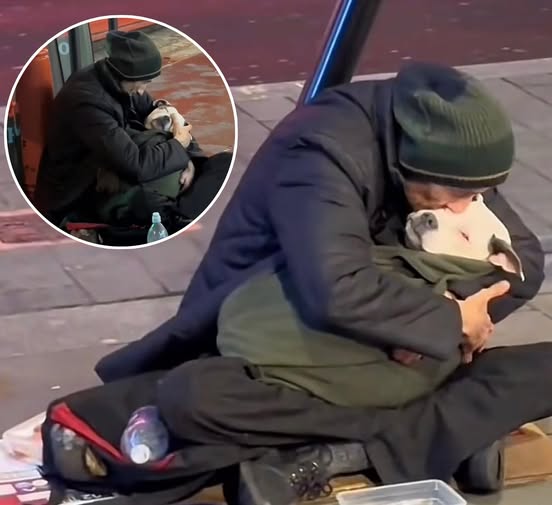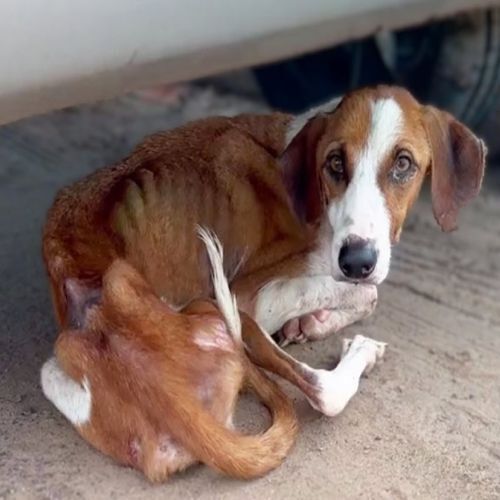The story began on an ordinary afternoon at the zoo, the kind of day when families strolled through the exhibits with children holding balloons and ice cream cones, pointing with wide eyes at the animals behind the glass. No one expected that what was supposed to be a day of leisure and learning would suddenly turn into a life-or-death situation that left the entire crowd stunned. Visitors had gathered near the chimpanzee enclosure, chatting casually, when someone gasped and pointed toward the water moat. A chimpanzee named Jo-Jo had somehow slipped and fallen into the deep pool that surrounded the enclosure. At first, people thought it was nothing more than a playful accident, that he would climb back out with ease. But within seconds, it became terrifyingly clear that Jo-Jo was struggling.
The water was far deeper than many realized, and unlike humans who can be taught to swim, chimps are not natural swimmers. Their dense bodies make it nearly impossible to stay afloat for long. Jo-Jo thrashed desperately, his arms flailing and his eyes wide with panic as the water pulled him down. Gasps rippled through the crowd as the chimp’s head bobbed above the surface before disappearing again. Mothers clutched their children, fathers pulled out their phones to record, and others simply stood frozen in shock.
“Everyone in the whole place was just standing around watching this monkey drown,” one witness would later recall. Some even shouted for help, while others pleaded with the staff to intervene. But the zookeepers on site hesitated. They knew the risks. Chimpanzees are incredibly strong and unpredictable, even more so when they are frightened. Entering their enclosure was against strict protocol. A zookeeper warned the crowd that no one should attempt to go in, for fear of being attacked not just by Jo-Jo, but by the other chimps nearby. The rule was clear: humans were never to enter the habitat.
But one man could not simply watch. His name was Rick Swope, an ordinary visitor who had come with his family that day. He had no special training, no professional experience with animals, and certainly no protective equipment. Yet as he watched Jo-Jo go under for the second time, a voice inside him screamed louder than the rules being recited by the staff. “When he went down the second time I knew I had to do something,” he later said.
Ignoring the warning, Rick sprinted toward the security barrier. In one swift move, he pulled himself up, climbed over the wall, and without hesitation dove straight into the murky water. Gasps turned to cries as the crowd realized what he was doing. He was risking his own life for a chimpanzee. Many people could hardly believe their eyes. For a moment, all they could do was watch in silence as man and animal were locked in the most unlikely struggle for survival.
The water was cold and dark, making it difficult for Rick to see. He spotted Jo-Jo sinking, bubbles escaping from the chimp’s mouth. With powerful strokes, Rick reached him and wrapped his arms around the panicked animal. The chimp flailed wildly, nearly dragging Rick down with him, but the man held on tight. Using all his strength, he pushed upward, gasping as they both broke the surface. The crowd erupted in cheers, though fear still lingered in the air. Jo-Jo clung desperately to Rick as though he understood that this stranger was his only chance.
But the challenge was far from over. The moat’s edges were steep and slippery. Jo-Jo was heavy, and Rick’s muscles burned as he tried to drag the chimp upward. Twice he slipped back, nearly losing his grip. The audience shouted encouragement, some screaming for ropes, others praying out loud. Finally, with a last surge of effort, Rick pushed Jo-Jo onto the bank, shoving the animal toward safety before pulling himself out. The drenched chimp scrambled up the rocks, dripping wet but alive.
For a moment, the enclosure was silent except for the heavy breathing of man and chimp. Jo-Jo turned, looking at Rick with what many described as unmistakable gratitude. Their eyes locked briefly, and in that instant, it was as if both understood the extraordinary bond that had just been formed. Then, as quickly as it had begun, the other chimps began to approach, curious about what had just happened. Rick, realizing the danger, quickly scrambled back over the wall and into the safety of the public area. When his feet finally hit the ground, the crowd burst into applause.
Later, reporters asked Rick why he had done it. He shook his head, almost embarrassed by the attention. “It just wasn’t right,” he said simply. “He needed help, and nobody was going to help him. I just couldn’t stand there.” His words captured the hearts of thousands who read the story in newspapers across the country. People praised his courage, calling him a hero, though Rick never liked the label. To him, it wasn’t about being brave, it was about doing what was right in a moment when everyone else was frozen by fear.
The zoo staff later admitted that while they had strict rules to protect both humans and animals, they were deeply relieved that Jo-Jo had survived. Many admitted privately that had Rick not acted, the chimp would almost certainly have drowned. While they stressed that no visitor should ever attempt such a dangerous rescue again, even they could not hide their admiration for the man who chose compassion over caution.
The story spread quickly, not only because it was dramatic but because it touched something deeper in people’s hearts. At a time when many feel disconnected from nature, Rick’s selfless act reminded everyone of the bond humans share with animals. Jo-Jo was not just another exhibit; he was a living being, terrified and fighting for his life. And in that moment, one man’s humanity reached across the divide between species.
Witnesses later described how children who had watched the rescue couldn’t stop talking about it. Parents used it as a lesson in kindness and courage, telling their kids that helping others—even when it is hard—was the right thing to do. Social media buzzed with comments, praising Rick for putting compassion before safety. Some argued that it was reckless, but the overwhelming majority saw it as an act of pure heart.
Over time, the story of Rick and Jo-Jo has become one of those tales people retell when they talk about unexpected heroism. It wasn’t about fame, money, or recognition. It was about a man who refused to let a creature suffer while everyone else watched. Even years later, the memory of that day continues to inspire.
Stories like this remind us that courage is often found in the simplest of acts. It is the willingness to dive into the unknown, to risk something of ourselves for the sake of another being. For Rick, it was a split-second decision, but for Jo-Jo, it was the difference between life and death. The image of that drenched man lifting a frightened chimp from the water remains etched in the minds of all who were there, a living testament to the power of compassion.
In a world where people are often too quick to pull out their phones instead of lending a hand, Rick’s decision stands as a powerful example. It asks us all a difficult question: when we see someone—or something—in need, will we stand back and watch, or will we step forward and act?
On that fateful day at the zoo, Rick chose to act. And because he did, a life was saved, a bond was formed, and the rest of us were given a story that proves just how extraordinary ordinary people can be.














